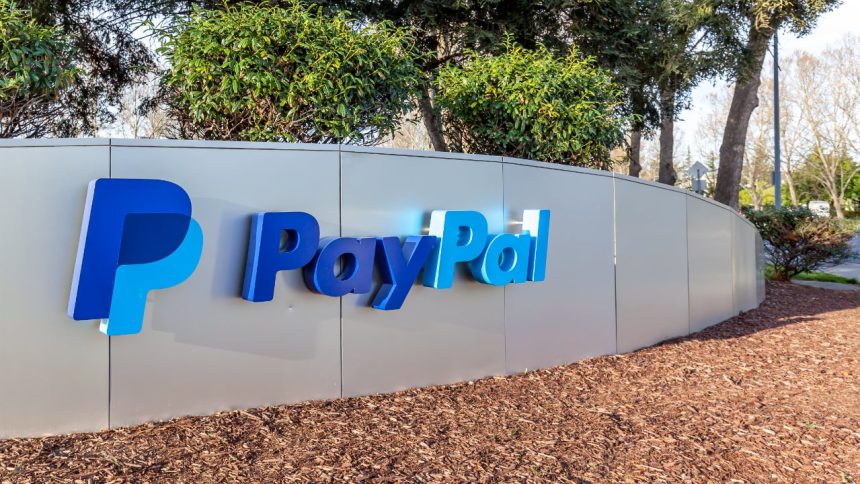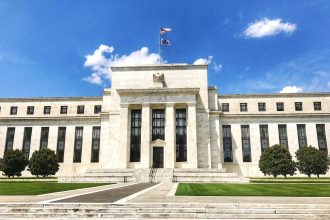There’s a good chance you’ve encountered an option to checkout with PayPal when shopping online.
Using PayPal to make a purchase typically just requires verifying saved information, without needing to enter it manually. PayPal also allows users to make peer-to-peer payments. Frequent users may even be inclined to apply for a reward-earning PayPal credit card or PayPal’s line of credit.
Many of the features offered by PayPal are similar to what you get with a bank account, but PayPal isn’t a bank. Rather, it’s a fintech company that offers digital-payment services. Whether PayPal is a better option for you than a traditional bank account may depend on several important differences between the two.
How does PayPal work?
PayPal is available in more than 200 countries. That massive network also offers the ability to conduct transactions in 25 different currencies.
Users link their PayPal Balance accounts to a credit card, a checking account or a savings account. PayPal also offers two credit cards, a debit card and a prepaid card managed by Netspend, all of which can be accessed from a PayPal Balance account.
No matter how a PayPal account is funded, the basics of using an account are rooted in three functions:
- Shop online. Merchants such as Target, Walmart, Walgreens and many others let you pay with PayPal when checking out online.
- Send money. If you’re paying for a product or service, the seller pays a small fee for the transaction. If you’re paying a friend — for example, reimbursing someone for splitting a check at a restaurant — there’s no fee. There is, however, a 5 percent fee for international transactions.
- Request money. You can also request money from other PayPal users. If you’re a freelance worker, for example, you can request to be paid for your services through PayPal.
In addition to digital payments, PayPal has expanded to include other unique financial services like buying and selling cryptocurrency.
Users who have a PayPal debit or prepaid card can withdraw cash from ATMs in the MoneyPass network, make in-person purchases and receive early direct deposits. The prepaid card even lets users open an interest-earning savings account.
Funds for the debit and prepaid card accounts are not held by PayPal, but rather by one of its partner banks in a custodial account. Because PayPal is not a bank, it is not directly covered by the Federal Deposit Insurance Corp. (FDIC), but users’ funds are still FDIC-insured up to $250,000 through the partner banks that hold them.
Products and services offered by PayPal
Products PayPal offers that can be used for banking include:
- PayPal Cash Card, a debit card
- PayPal Cashback Mastercard, a credit card that earns cash rewards on eligible purchases
- PayPal Extras Mastercard, a credit card that earns points, which can be redeemed for cash, travel vouchers, gift cards or merchandise
- PayPal Credit, a digital and reusable credit line
- PayPal Prepaid Mastercard, a reloadable prepaid card
- Savings account, offered for those with the Prepaid Mastercard
PayPal’s savings account option through its prepaid card offers a rate that comes close to some of the best savings account rates offered.
That earning potential can be a strong selling point for keeping money with PayPal’s prepaid card. Plus, customers with the card can get access to direct deposited funds up to two days early. One downside to PayPal’s all-digital approach, however, is the lack of brick-and-mortar locations.
“One of the largest drawbacks for a consumer looking to make their primary financial relationship is the lack of personal connection via branches,” says Rachel Huber, competitive strategy manager of Marqeta, a fintech company that develops cards and payment services. A majority of consumers — 68 percent — consider branch location convenience to be a very important factor when choosing an account, according to a 2021 study by Cornerstone Advisors.
Huber also says that although PayPal does offer several payment options, the company still falls short of what big banks have to offer in terms of choice.
PayPal also doesn’t offer other services you may need one day, such as auto loans or mortgages.
Can PayPal be used as your bank account?
PayPal offers a small selection of deposit and credit products, including a savings account and a Cashback Mastercard. If you’re unable to open a bank account due to a bad ChexSystems report, PayPal can be helpful. The company’s prepaid card has a $4.95 monthly fee, which can be a better alternative to paying extra fees for check-cashing services. And, as mentioned above, PayPal debit and prepaid card accounts are indirectly covered by the FDIC, which can provide you some peace of mind.
However, PayPal’s deposit options are limited compared with traditional banks. You won’t be able to consolidate your finances in one place with PayPal, and you won’t have access to many digital banking features that most banks provide. For example, you won’t be able to make peer-to-peer transactions through popular platforms such as Zelle. As such, using a traditional bank or credit union alongside PayPal may be your best bet.
Alternatives to PayPal
Those with access to a traditional checking account or savings account may be better off using PayPal alongside an account at a federally insured institution. There are more options offered by traditional and online-only banks, plus consumers can find high certificates of deposit and savings account rates.
Sometimes, using your PayPal account with a linked bank account can come with bonus features. For example, Chase Bank customers can redeem Chase reward points on purchases when they check out using PayPal.Still, rewards and other additional features are just one factor when determining where to keep your money.
The type of financial account consumers use depends on convenience, price and features, says Rob Levy, vice president of research for Financial Health Network.
“The question we should be focused on is not bank versus nonbank, but rather what company is going to address a consumer’s financial health needs best — across spending, saving, borrowing and planning,” Levy says. “Who can do it most reliably, most affordably and with an eye towards helping that consumer improve their financial well-being over time.”
–Bankrate’s Marcos Cabello updated this article. Freelance writer David McMillin contributed to a previous version of this article.
Read the full article here
















